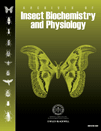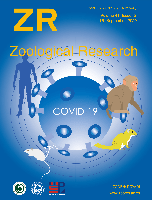
Physiological Genomics
metrics 2024
Unlocking the Genetic Mysteries of Physiology
Introduction
Physiological Genomics is a prestigious scholarly journal published by the American Physiological Society, dedicated to advancing the understanding of the genetic underpinnings in physiology. With an ISSN of 1094-8341 and an E-ISSN of 1531-2267, this journal serves as a vital platform for researchers exploring the intersection of genetics and physiological processes. As of 2023, it enjoys a respectable impact factor, particularly standing strong in the Q2 quartile in both Genetics and Physiology categories, illustrating its importance within a competitive landscape. With an impressive rank of #69 out of 193 in Biochemistry, Genetics, and Molecular Biology - Physiology, and #128 out of 347 in Genetics, it reflects a robust commitment to quality research. Committed to fostering innovation, Physiological Genomics provides comprehensive access to groundbreaking studies from 1999 to 2024 and remains a quintessential resource for researchers, professionals, and students alike aiming to enhance their understanding of physiological genomics.
Metrics 2024
 1.00
1.00 2.50
2.50 3.50
3.50 125
125Metrics History
Rank 2024
Scopus
IF (Web Of Science)
JCI (Web Of Science)
Quartile History
Similar Journals

JOURNAL OF EVOLUTIONARY BIOCHEMISTRY AND PHYSIOLOGY
Exploring the Nexus of Biochemistry and Evolutionary DynamicsJOURNAL OF EVOLUTIONARY BIOCHEMISTRY AND PHYSIOLOGY, published by PLEIADES PUBLISHING INC, is a pivotal periodical that delves into the intricate relationships between biochemical processes and evolutionary dynamics. With its ISSN 0022-0930 and E-ISSN 1608-3202, this journal serves as a comprehensive platform for researchers, professionals, and students dedicated to understanding the physiological adaptations and biochemical mechanisms influenced by evolutionary pressures. Although it is not an open access journal, it offers valuable insights across its historically significant coverage spanning from 1972 to 2017, making it an essential resource for those working in agricultural, biological, and molecular sciences. Despite its current Scopus rankings revealing limited visibility within its fields, the journal remains committed to fostering scholarly dialogue and advancing knowledge in the realm of evolutionary biochemistry, especially for those exploring the ecological, genetic, and integrative physiological aspects of life.

Journal of Physiological Anthropology
Fostering Innovative Research in Human Health and PerformanceThe Journal of Physiological Anthropology, published by BMC, serves as a leading platform in the field of anthropological science with a strong focus on the physiological aspects of human adaptation and performance. Since its establishment in 2006, this open access journal has gained recognition for its contributions to understanding human biological variation through an interdisciplinary lens, enabling researchers and practitioners in fields such as anthropology, orthopedics, and public health to disseminate and access high-quality research. With an impressive impact factor and a classification in the Q1 quartile for Anthropology (2023), the journal holds a prominent position, ranked #29 in Social Sciences and #76 in Orthopedics and Sports Medicine according to Scopus. The journal's objectives include fostering innovative research and promoting discussions that advance knowledge on human performance, adaptation, and health in diverse environments. As a vital resource based in the United Kingdom and available freely since 2012, it opens avenues for collaboration and knowledge exchange among researchers, professionals, and students alike.

JOURNAL OF COMPARATIVE PHYSIOLOGY A-NEUROETHOLOGY SENSORY NEURAL AND BEHAVIORAL PHYSIOLOGY
Advancing Knowledge in Sensory and Behavioral PhysiologyJOURNAL OF COMPARATIVE PHYSIOLOGY A-NEUROETHOLOGY SENSORY NEURAL AND BEHAVIORAL PHYSIOLOGY, published by Springer Heidelberg, is a leading journal in the fields of animal science and zoology, providing vital insights into the neuroethology, sensory processing, and behavioral physiology of various species. With an impressive H-index, the journal has established itself as a credible source of high-quality research since its inception in 1974, maintaining relevance through to 2024. Recognized for its rigorous editorial standards, the journal is categorized in the Q1 rank for Animal Science and Zoology, Q3 in Behavioral Neuroscience, and boasts competitive rankings across several other disciplines, indicating its broad impact within the scientific community. While the journal is currently not open access, its articles can be crucial for advancing knowledge in comparative physiology and fostering interdisciplinary discussions among researchers, professionals, and students alike. By publishing original research, reviews, and critical commentaries, the journal continues to be a cornerstone for those exploring the intricate connections between neural mechanisms and behavioral adaptations.

Fishes is a premier academic journal dedicated to the exploration and dissemination of cutting-edge research in the fields of aquatic science and ecology. Published by MDPI in Switzerland, this open-access journal has been accessible to researchers globally since its inception in 2016, allowing for the rapid exchange of knowledge that fosters scientific advancement in the study of fish and aquatic ecosystems. With its convergence in the years 2016 to 2024, Fishes proudly holds a notable position in the academic community, evidenced by its category quartile rankings of Q3 in Aquatic Science and Q2 in Ecology for 2023. The journal consistently features innovative research encompassing ecological interactions, conservation strategies, and evolutionary studies within aquatic environments. By integrating interdisciplinary approaches and encouraging contributions from a diverse array of experts, Fishes serves as an invaluable resource for researchers, professionals, and students alike, contributing to the understanding and preservation of our precious aquatic biodiversity.

ARCHIVES OF INSECT BIOCHEMISTRY AND PHYSIOLOGY
Fostering Knowledge for Ecological and Agricultural ProgressArchives of Insect Biochemistry and Physiology, an esteemed journal published by WILEY, stands at the forefront of advancing the understanding of insect physiology and biochemistry. With an ISSN of 0739-4462 and E-ISSN of 1520-6327, this journal serves as a critical resource for researchers and professionals in the fields of biochemistry, insect science, and physiology. As of 2023, it holds a respectable impact factor with a Q3 ranking in Biochemistry and Physiology, and a Q2 in Insect Science, highlighting its relevant contributions to these disciplines. The journal has maintained a continuous publication history from 1983 to 2024, hosting pioneering research and review articles that inform both academic and practical applications in entomology. While it does not currently offer open access, it is accessible through various institutional subscriptions, ensuring widespread availability of essential findings. This journal plays a vital role in elucidating the complex biochemical pathways and physiological adaptations of insects, fostering knowledge that is crucial for ecological research, agricultural development, and conservation efforts.

American Journal of Physiology-Regulatory, Integrative and Comparative Physiology
Elevating the Standard of Physiological ScholarshipThe American Journal of Physiology-Regulatory, Integrative and Comparative Physiology, published by the American Physiological Society, serves as a premier platform for disseminating cutting-edge research in the fields of physiology, emphasizing regulatory, integrative, and comparative studies that advance our understanding of bodily functions. With an ISSN of 0363-6119 and E-ISSN of 1522-1490, this esteemed journal is recognized for its substantial impact, maintaining a 2023 Q2 ranking in both the physiology and medical physiology categories as well as commendable positions in Scopus rankings. The journal has been pivotal since its inception in 1977 and continues to foster interdisciplinary dialogue among researchers, professionals, and students alike, contributing significantly to the evolving landscape of physiological sciences. Although it operates under a traditional subscription model, its commitment to high-quality, peer-reviewed content ensures that it remains an essential resource for anyone engaged in physiological research and education.

Frontiers in Physiology
Pioneering research at the intersection of physiology and medicine.Frontiers in Physiology, published by FRONTIERS MEDIA SA, is a leading open-access journal that has been at the forefront of physiological research since its inception in 2010. As a reputable publication based in Switzerland, it aims to foster the dissemination of groundbreaking findings across various domains of physiology, engaging a global audience of scholars and practitioners. With a commendable Q2 ranking in the fields of both general physiology and medical physiology for 2023, this journal stands out in its field, achieving a significant Scopus rank of #32/113 in medical physiology and #58/193 in biochemistry, genetics, and molecular biology. Frontiers in Physiology not only commits to maintaining high scholarly standards but also ensures that all its articles are freely accessible, thereby promoting collaborative knowledge exchange. With a clear focus on advancing our understanding of physiological processes, the journal plays a crucial role in the development of innovative approaches to health and disease, making it an essential resource for researchers, professionals, and students alike.

FISH PHYSIOLOGY AND BIOCHEMISTRY
Innovative Insights into Fish BiochemistryFISH PHYSIOLOGY AND BIOCHEMISTRY, published by Springer, is a leading journal in the fields of aquatic science, biochemistry, and physiology, with an impressive trajectory since its inception in 1986 and continuing through 2024. Operating from the Netherlands, this journal serves as a vital platform for researchers, professionals, and students alike, showcasing innovative studies that explore the physiological and biochemical aspects of fish, contributing significantly to our understanding of aquatic ecosystems and their inhabitants. With a robust impact factor reflected in its Q1 status in Aquatic Science and notable rankings in other relevant categories, FISH PHYSIOLOGY AND BIOCHEMISTRY maintains a strong scholarly influence, evidenced by its Scopus ranking within the top quartiles of various biological sciences disciplines. While the journal does not currently offer open access options, it remains a cornerstone for advancing knowledge and fostering collaboration within the community dedicated to aquatic biology and related fields.

Comparative Biochemistry and Physiology D-Genomics & Proteomics
Transforming Knowledge: The Essential Journal for Genomic and Proteomic AdvancesComparative Biochemistry and Physiology D-Genomics & Proteomics, published by Elsevier Science Inc, is a premier journal in the realm of molecular biology and comparative physiology, with a focus on genomic and proteomic sciences. Recognized for its high-impact contributions, it holds a Q1 ranking in Animal Science and Zoology and was established with the vision of bridging gaps in our understanding of biological systems through experimental and comparative approaches. With an impressive Scopus ranking, this journal not only ranks among the top 12% in Animal Science and Zoology but also demonstrates commendable standings across various categories including Aquatic Science and Molecular Biology. The journal’s commitment to disseminating high-quality research makes it an essential resource for researchers, professionals, and students alike, allowing them to access critical studies that influence advancements in genomics and proteomics. While it operates under a traditional subscription model, its impactful findings are crucial for those aiming to enrich their knowledge and research capabilities in these pivotal scientific fields. Join us in exploring the transformative insights and developments that this esteemed journal has to offer for the study of genomics and proteomics.

ZOOLOGICAL RESEARCH
Fostering Dialogue in the World of Zoological ScienceZoological Research, published by Science Press, stands as a premier open-access journal in the fields of animal science, zoology, and ecology. Since its inception in 1980, it has fostered an inclusive platform for innovative research and dialogue within the scientific community, enabling researchers from across the globe to share their findings and insights. The journal's significant impact is underscored by its classification in the Q1 quartile across multiple categories, including Animal Science and Zoology, Ecology, and Nature Conservation for 2023, as well as its impressive rankings within Scopus, placing it in the top tier of its respective fields. Situated in Beijing, China, Zoological Research not only contributes to advancing knowledge but also emphasizes the critical importance of conservation practices in today’s rapidly changing ecosystems. With its commitment to open access, researchers, educators, and students alike benefit from immediate, unrestricted access to vital scientific information, making it an essential resource for anyone involved in the biological sciences.